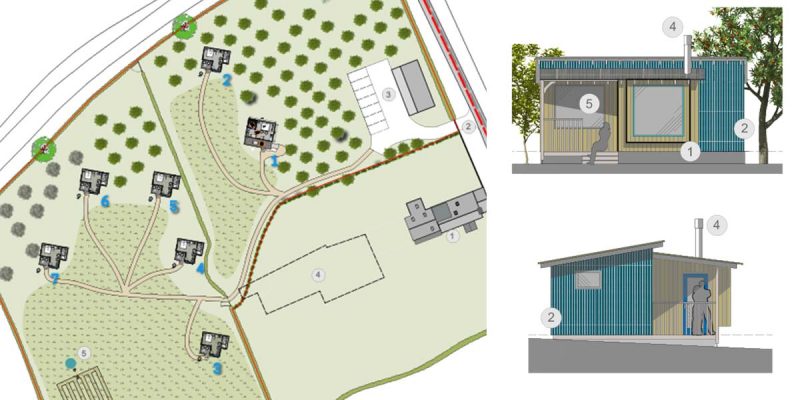Holiday Cabins in Herefordshire
Holiday Cabins in Herefordshire approved
KODA architects scheme to provide 7 new holiday cabins in rural Herefordshire has been approved.
The location offers a truly exceptional view of of Hay Bluff and the Black Mountains. The scheme includes ecological enhancements designed by the applicants, who are landscaped gardeners, which propose to restore a previous orchard and include local apple species such as Hereford Redsteak Cider and Hereford Russet. As well as supplementing new native hedgerows the ecological enhancements provide a large area of flower meadow complete with owl posts. The site makes the most of the abundance of local public rights of way for the guests to enjoy by foot and bicycle
The cabins themselves are designed to enhance the enjoyment of the area, they feature a bench seat in a large oriel window to take delight of the unique vistas. Rustic materials in the walls and roof include reclaimed timber and corrugated metal cladding fitting the local context. The cabins will also be built by the applicants son Paul, who is a talented Carpenter https://www.joypadscabins.co.uk/
The application was unanimously supported and adheres to the principles of Herefordshire Councils Policy RA6. It sets out the conditions under which the Council will be supportive of proposals, which help to diversify the rural economy and generate employment. This includes both sustainable tourism proposals of an appropriate scale.
We can not wait to see them being built and look forward to updating you on their progress.

Views from the proposed cabins



